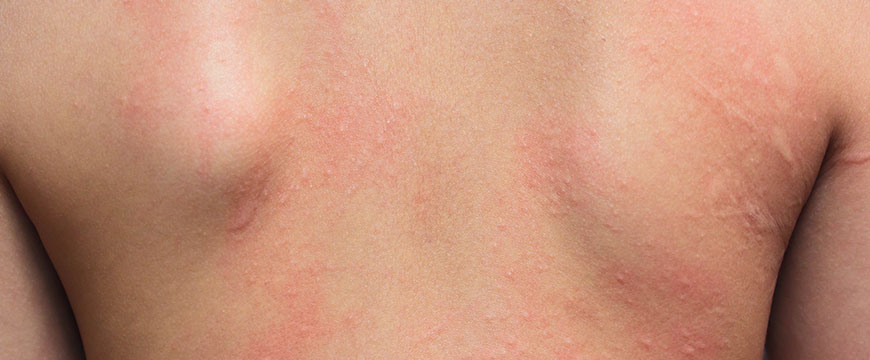
Hives are itchy, sometimes it has a lumpy rash that will appear on the surface of the person’s skin. Home remedies and medication can normally treat hives quickly.
Hives are intensely itchy and discolored raised areas of the skin. They can be anywhere on your body. Normally, hives have a trigger, which is both non-allergic and allergic.
While hive symptoms can be irritating, there are many ways of treating, soothing and removing them. When you go to an allergy specialist, they will talk to you about it in detail, especially the symptoms, and potential complications you can encounter.
If you have been suffering from hives, you should know that there are ways to relieve them. Read on now.
Lukewarm Bath
Hot water can be very irritating to your skin, but you can add different products to a bath so you can relieve the itching sensation. You should sprinkle in baking soda and colloidal oatmeal to achieve a soothing effect.
Colloidal oatmeal has anti-inflammatory properties and forms a protective barrier on the skin, which holds in moisture and eases inflammation. It can be found in a lot of moisturizers, cleaners, and shampoos that will benefit people who have sensitive skin.
Avoid Products that can Cause Skin Irritation
Certain soaps can dry your skin and causes more itching when you suffer from hives. Make sure to use soap that has been marketed for sensitive skin. Look for a great selection that will suit you. Choose the ones that omit fragrance and other irritants.
You must also avoid using irritating moisturizers or lotions. When you doubt it, choose a formula that will target sensitive skin. Applying it immediately after bathing can also help soothe the itch.
Follow the Treatment Plan
If you want the treatment to take effect, you should follow the treatment plan the allergy doctor recommended and created for you.
The treatment plan might not work when you take allergy medications less often than what was prescribed. For instance, if the doctor has prescribed a daily antihistamine and you only take it during a flare-up, you might still get hives.
Use Over-the-Counter Medication
Hives are treated best using over-the-counter antihistamines or topical creams such as calamine lotion or hydrocortisone. Antihistamine medications suppress the histamine that the body releases, which causes your itchy reaction. Topical treatments work on the skin cells to stop histamine from getting released. You should not apply topical creams to hives if they are on your face or if the skin is infected or broken.
Use Aloe Vera
Aloe vera is known for the healing properties it provides you.
Even if it is a natural anti-inflammatory, it can cause contact dermatitis so you should do a skin patch test before applying it.
In order to do a skin patch test, you can simply add a small amount to an unaffected area. If you can do that, apply it to the side of your forearm. If you do not encounter skin irritation within 24 hours, you can apply it to your hives.
The topical aloe vera can be applied to your hives as you need to, which is likely a couple of times a day. Make sure to follow the instructions.
When Should You See a Doctor?
The severity of hives varies. Even if most people can manage the symptoms at home, you might have to seek medical attention if:
- The symptoms last for days
- The symptoms worsen
- The rash is too painful and leave bruises
- The symptoms interfere with your daily life
- You experience dizziness
You can go to an allergy center Germantown MD anytime if you need to consult a doctor.

